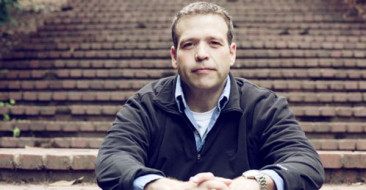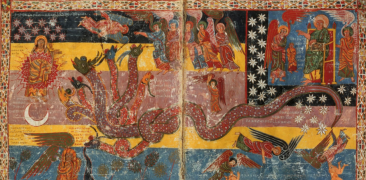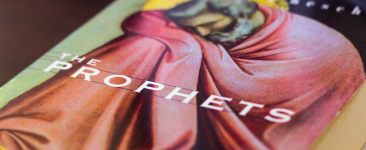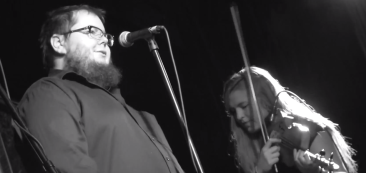Last week Donald Miller posted some thoughts regarding his reasons for “not going to church very often.” His firstpost, “I Don’t Worship God by Singing. I Connect With Him Elsewhere” primarily discussed his lack of connection to lecture and music, scholastic and entertainment based models for worship services and other programs. His second post, “Why I Don’t Go to Church Very Often, A Follow Up Post“, went into more detail about those issues and others. Continue reading
NT Wright on Taking the Bible Literally
In this BioLogos produced video, Peter Enns interviews N.T. Wright on methods of understanding scripture.
NT Sources for the Birth/Incarnation of Christ
The Gospel of Matthew:
“Now the birth of Jesus Christ happened this way. While his mother Mary was engaged to Joseph, but before they came together, she was found to be pregnant through the Holy Spirit. Because Joseph, her husband to be, was a righteous man, and because he did not want to disgrace her, he intended to divorce her privately.
Initial Thoughts on this Phil, GQ, and A&E thing:
I have been keenly aware in every job I have ever had that I could be suspended, fired, or forced to resign for “saying what I think.” I haven’t always liked this reality, and I’ve been known at times to push the boundaries. However, I have never considered my employer’s right to terminate me for such behavior a “violation of free speech.” My guess is that if you have ever been employed, you are aware of this as well—and I think we all really want it to work that way.
The Prophets & an Emotional God
I recently began a re-reading of Abraham Heschel’s classic work, The Prophets, as part of personal research on the idea of “the weakness of God”. I first read Heschel as part of a undergrad class on the prophets of the Hebrew scriptures. The class was very small, consisting of only four or five of us. Through reading Heschel’s work and our personal, in-depth, and lengthy discussions, I was captivated and forever changed by the image of the prophet as one who wrestles with the “divine pathos”, the very suffering of God.
Kid Snippets Are Hilarious
Okay, so my middle-school daughter introduced me to these today. I’m sure everyone else in the world has been aware of them for a while. If not, watch this one, Mean School Nurse (see above), and then watch all the others.
The question is: WHY DIDN’T I RECORD MY CHILDREN’S PLAY CONVERSATIONS AND ACT THEM OUT ON VIDEO!!!
Remember How We Forgot—Shane Koyczan and Hannah Epperson
Watch this and remember how beautiful, brief, wonderful, and so full of potential this life is. So good.
More about Shane Koyczan here. Hannah Epperson music here.
“You Probably Don’t Know Their Names” by Paul S. Williams
Good thoughts by Paul S. Williams on ministers who, without fame or grand recognition, serve their congregations:
Nowadays we are so fixated on celebrity ministers that we have eyes for little else. But there are so many more who look so much like Jesus. We do not see them because we are not paying attention. We are too busy attending to the voice of ambition, seeking the successful and famous.
What’s nice to remember is that this does represent the majority of those who work in pastoral/church ministry both here and throughout the world. Many of them work “real jobs” other than church work. They have never written a book. They have never been invited to speak at a conference. They are likely not sources for the wide array of highly touted models claiming to have the keys to “ministry effectiveness”.
Schiffman on Purity As Separation
Lawrence Schiffman has posted a series of brief articles on perceptions and mis-perceptions of Jewish purity laws of Second Temple Judaism. If you want to gain better understanding of Gospel texts dealing with clean and unclean, these posts may give you some insight from a Jewish perspective.
- COMPARING THE DEAD SEA SCROLLS, RABBINIC LITERATURE, AND THE NEW TESTAMENT
- RITUAL PURITY AND IMPURITY AND THE ADMISSION PROCESS
- NEW TESTAMENT TEXTS
[UPDATE: I also see that Dr. Schiffman has another, earlier, four-part series, also dealing with ritual purity in Second Temple Judaism: Body and Soul, Purity and Impurity.]
“The biggest thing you can do is just be kind to another human being.”
The powerful story and images about (then) 18-year-old Keshia Thomas in 1996, who at risk to her own safety protected a white supremacist from a violent crowd:
…in a flash, the crowd went from controlled protestors to an angry mob, hitting the man with sticks and kicking him as he lay on the ground. In that moment, Thomas separated herself from the mob and threw herself on the man to protect him.
“Platitudes designed to make people feel better with bumper-sticker theology”—Nate Pyle
This post by Nate Pyle, “Confronting the Lie: God Will Not Give You More Than You Can Handle“, is so incredibly good. Please stop what you are doing and go read it right now. Here’s a snippet:
Not only am I okay asking those [difficult] questions, but I think there is something holy and sacred in being courageous enough to ask them. Don’t be fooled, those questions are only to be asked by the courageous. It is easy to spout trite Christian platitudes designed to make people feel better with bumper-sticker theology. But insipid axioms do little in the face of the actual brokenness of the world. It is more courageous to ask the hard questions of God and wait for him to answer than it is to find hope on the side of coffee mug. Asking those questions requires courage because, in the end, it is very likely they will not be answered.
God, Jesus, Pacifists, Pansies, & A Girl From Pakistan: Thoughts on Mark Driscoll’s Recent Article
I dare Mark Driscoll to call this young lady a “pansy”.
Mark Driscoll’s article, “Is God a Pacifist?“, has spurred a lot of online discussion and debate—and rightly so, because his article raises (and glosses-over) several complex and difficult topics.
In my own understanding of Jesus’ teachings, his life, and the practices of the early church, I lean heavily towards pacifism. However, I know that if my family were threatened with violence, my response could be anything but peaceful or lacking in violence. Beyond this inner and (thankfully) theoretical struggle of “what would I do?”, my initial thoughts after reading Driscoll’s post were these (though not in the order I felt them):








